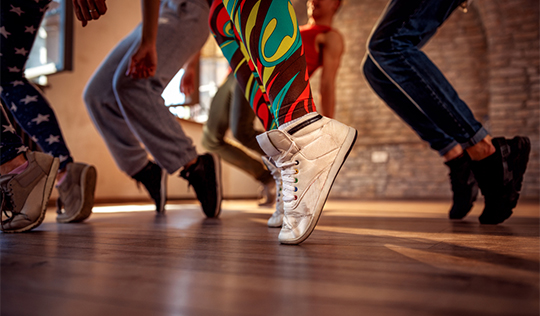Lately, on a Saturday night, I’ve been thinking about diversity and dancing.
During lockdown, the Jeyaratnam-Joyners seem to have become super-fans of Strictly Come Dancing. Maybe it’s me missing wearing a suit and shiny shoes or my wife, Caroline, who’s missing dancing and live music, but we’ve become a little bit obsessed. Personally, I’m Team HRVY.
One thing we’ve found interesting, in amongst all the sequins, scoring and shimmying, is the online reaction to the various personalities on the show.
Last weekend Caroline showed me a tweet that said that the judge Motsi Mabuse was too loud. Of course, Motsi isn’t any louder than anyone else on the show (there’s a LOT of shouting, whooping and general clamour under the glitterball). Many of you will know that “too loud” is often a coded way of saying “too black.” People who experience prejudice often find that behaviours acceptable in others are turned against them as a form of aggression. You can read an interesting piece about that here.
Hypothetically – what if she was louder than everyone else?
Why can’t Motsi be loud?
This year, we’ve seen a lot more enquiries coming in to Aspire Leadership asking about our work on Equality, Diversity and Inclusion. It’s heartening to see how movements like Black Lives Matter and Times Up have taken tragedy and pain using those moments to build awareness and spur people to action.
At the same time, more than once we’ve heard potential clients say something along the lines of, “Well I’m all for diversity, but someone has to be a cultural fit” or, “We don’t want positive discrimination because it should be about talent.”
I’ll leave the paucity of people’s knowledge about the legality of positive discrimination in the UK, to another blog.
What seems to be underlying these statements is that “talent” and “fit” only come in one variety. Simon Sinek famously said we should “start with the why” and what we ask of our clients is:
Why do you want more diversity in your organisation?
If you want someone who looks different, but then you require them to behave in exactly the same way as everyone one else then all you have are variations on a theme rather than diversity. That’s not inclusion. That’s tokenism,
If you believe that we should have more diversity because it’s the right thing to do then that means accepting that different people come with different ways of operating, different styles, different thoughts, different experiences and different talents. True inclusion isn’t an easy place where everyone’s necessarily happy, it’s a place of challenge where leaders have to understand the individuals and the system. Good leaders harness all those differences and allow individuals to flourish. In this way people can work together as one celebrating their differences.
A core part of the Aspire philosophy is there is no one way of doing things, so our question is,
Why work on Equality, Diversity and Inclusion in your company if you don’t want to embrace diverse behaviours and talents?
Why can’t Motsi be loud?


Leave a comment